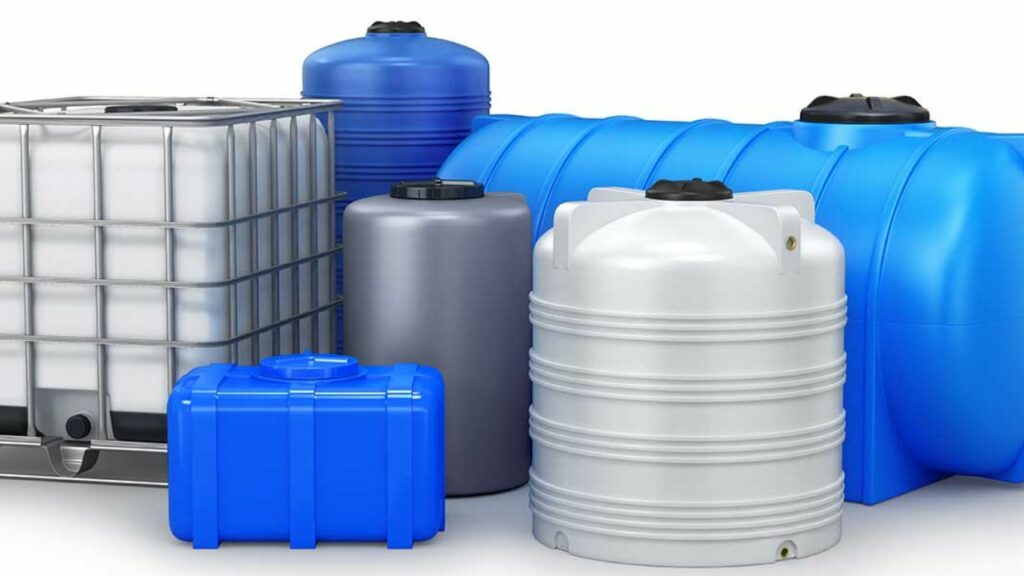Water tanks are an essential component of water management systems across the world. They provide a reliable and safe way to store water, which can be used for various purposes such as drinking, irrigation, and industrial use. Water tanks come in different types, and their applications vary depending on the location and needs of the users. In this article, we will explore the types of water tanks, how they are used across the world, and how they can be used in Africa.
Types of Water Tanks
Steel Water Tanks: Steel water tanks are robust and durable. They are suitable for large-scale water storage and can withstand harsh weather conditions. Steel water storage tanks are commonly used for businesses, industrial and commercial purposes, as well as water storage in communities, hospitals and schools.
Plastic Water Tanks: Plastic water tanks are the most common type of water tank. They are lightweight, durable, and affordable. They come in different sizes, shapes, and colours, and can be used for various purposes such as domestic use, irrigation, and industrial use. Plastic water tanks are easy to install and require minimal maintenance.
Concrete Water Tanks: Concrete water tanks are sturdy and long-lasting. They can withstand harsh weather conditions and are suitable for large-scale water storage. Concrete water tanks are commonly used for industrial and commercial purposes, such as water storage for manufacturing processes.
Water Tanks in Africa
Water tanks are essential in Africa, where access to safe and clean water is still a challenge in many areas. Water tanks can be used to store water during the rainy season, which can be used during the dry season when water is scarce. They can also be used for emergency response during droughts and floods.
For businesses and industrial/manufacturing companies that need access to a continual supply of water when there is an interruption, tanks provide a way for them to continue business as usual during water shortages.
In rural areas of Africa, where access to safe and reliable water sources is limited, water tanks can provide a reliable and safe way to store water. This can help to improve access to safe and clean water, reduce waterborne diseases, and promote sustainability.
In urban areas of Africa, where water infrastructure is inadequate, water tanks can provide a reliable and safe way to store water. They can be used to supplement existing water sources, reduce pressure on existing water sources, and promote water conservation.
Abeco Tanks the World’s First Water Bank
ABECO designs, manufactures and installs a wide range of high-quality water tanks. For more than 40 years, ABECO Tanks has been at the forefront of innovation in water tank solutions and the leading supplier of steel water tanks throughout Africa.
Water is the most precious resource in the world today. Money makes the world go round but water is needed to create money. It is also needed for life to exist. It can no longer be taken for granted. It is essential for governments to plan for efficient water supply.
In Africa especially there has been an increase in droughts and as a result a reduced production of food. The African communities who are already so vulnerable are facing increased vulnerability in the face of climate change, reduced rainfall and the lack of water supply.
From underground, ground level, elevated and customized tanks to circular bolted and self-supporting tanks, ABECO provides solutions for any water storage need. With a commitment to meeting national standards, ABECO ensures that all of their products are built with the highest quality materials for maximum durability. With experienced engineers and technicians on staff, ABECO can design and install the perfect tank for your specific needs.
The ABECO water tanks are modular in design, easy to transport, and easy to install not requiring any heavy machinery. This makes them an ideal solution for remote locations throughout Africa.
Located in Johannesburg, the Abeco Tank manufacturing plant is a 269,000 square foot facility that is manned by 150 qualified boiler makers, welders, operators and supervisors. This state-of-the-art facility uses cutting edge technology to ensure that all of its products are of the highest standard.
Their steel tanks are manufactured to suit the African climate. All of the steel components are coated with zinc so that the tanks last for up to 40 years or longer without any threat of corrosion.
ABECO Water Tanks have become a trusted partner for many African industries, providing them with clean water for their operations. From agriculture and hospitality to mining and manufacturing, ABECO Water Tanks are relied upon to supply the necessary water resources. Their tanks are designed with safety and durability in mind, ensuring that they can provide reliable clean water solutions to African industries. With their commitment to quality, ABECO Water Tanks have become an essential part of many businesses in Africa.
Conclusion
Water tanks are an essential component of water management systems across the world. They come in different types and can be used for various purposes such as domestic use, irrigation, and industrial use. In Africa, water tanks can provide a reliable and safe way to store water, improve access to safe and clean water, and promote sustainability. Governments, NGOs, and private organisations should promote the use of water tanks in Africa to ensure access to safe and clean water for all.
